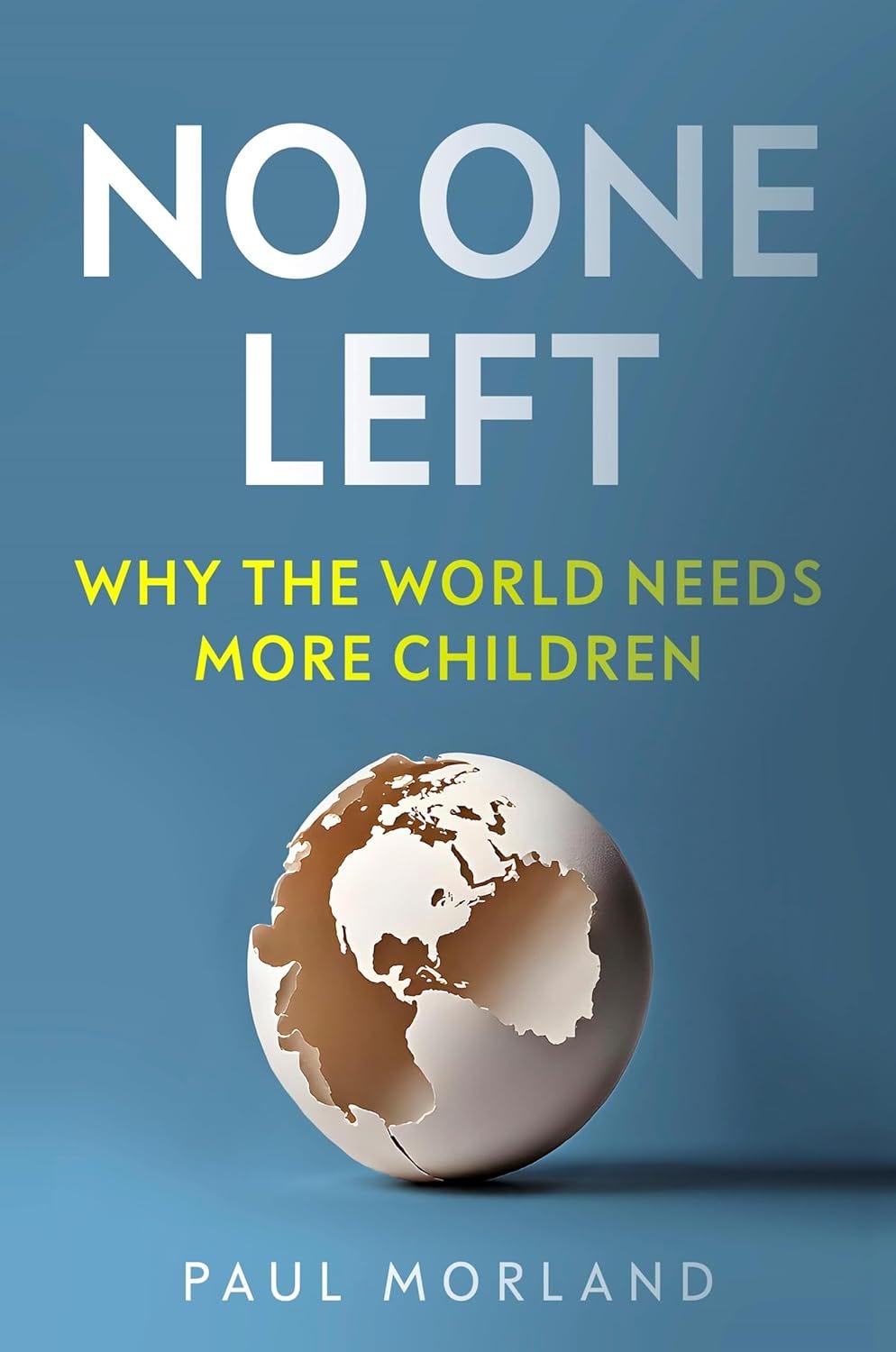Book Review: No One Left by Paul Morland
Why pronatalism is rapidly becoming the latest item on the prix fixe menu of progressivism.
Much like the frog in the saucepan, humanity is approaching boiling point on the issue of crashing fertility rates around the world. Even if one is in favour of sustaining the Ponzi scheme of mass immigration, it is clear from the book that this is not sustainable for long since even the supply of immigrants from the developing world will dry up as its fertility rate dips to our own level.
For a glimpse into the future, look at Japan. Three decades ago, Michael Crichton of Jurassic Park fame wrote the mildly xenophobic thriller Rising Sun in which he imagined a resurgent Japan taking over the West. The country is now in population decline and experiencing an elder-care crisis in which some 4,000 elderly people die alone in their flats, often undiscovered for weeks.
Morland explains the likely causes of the almost universal crashing of fertility rates around the world. I say almost because one country stands out as an outlier: Israel. There are a number of possible reasons why Israel has bucked the trend and managed to increase its fertility rate above replacement level but among the most interesting for policy makers is what Morland has to say about culture. Much as it is tempting to reach for big-state governmental interventions - we read about any number of them - it appears that there is no single lever that politicians can pull on.
The book lays out its arguments objectively and with scientific evidence to back it up, enlivened by plenty of personal anecdote. And yet, arguing the case for pronatalism in the past has drawn Morland quite a bit of flak from the Left which identifies the cause as somehow uniquely far-right. This is in spite of natalist policies being implemented by governments in notoriously right-wing countries such as Cuba and China.
The book is excellent at making the case for pronatalism in a way that transcends left/right politics and yet I fear that it will find itself removed from what Lionel Shriver calls the prix fixe menu of progressive politics. This is the neatly aligned cluster of causes that explains why a newly-elected Green Party councillor dedicated his election victory to Gaza. In the progressive view of the world, humans are a blight on the planet and a declining global population is something to be celebrated (Morland addresses this also). This misanthropy is not something confined to the margins, but is evident across our institutions with reproductive women so often being the target: Isabel Vaughan-Spruce being arrested for praying silently outside an abortion clinic; Costa Coffee decorating its cups with cartoons depicting girls with mastectomy scars; the IOC allowing biological males to assault women in the boxing ring.
Celebrating parenthood, the family and human flourishing goes against the grain of the governing classes in the West. This book makes an important contribution to doing just that.




